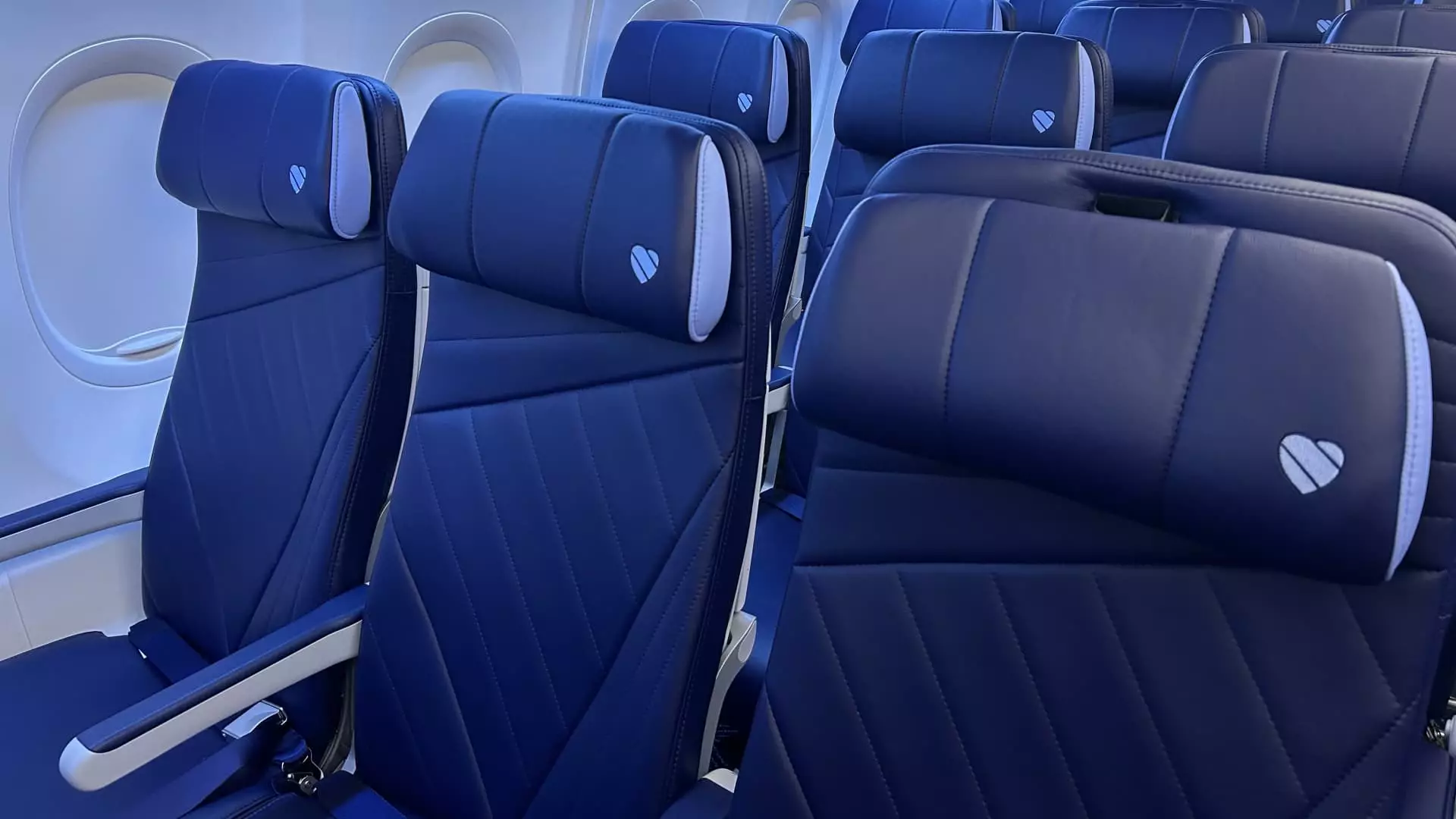For over half a century, Southwest Airlines built its brand on principles that prioritized simplicity, customer loyalty, and the removal of hidden charges. Its famous open seating policy, free checked bags, and straightforward pricing structure fostered a sense of fairness and transparency. However, recent developments signal a troubling departure from these core values, as Southwest introduces increasingly complex and costly seat selection options. This shift reveals a broader trend within the airline industry—profiting at the expense of travelers who once relied on the carrier’s reputation for fairness.
Introducing assigned seating, once considered an upgrade or optional, now becomes a source of additional revenue. Passengers can pay from around $41 to over $100 for preferred seats or extra legroom, adding hundreds of dollars to a typical travel expense. The pricing varies based on routes and seat location, turning what was once a straightforward choice into a bundled product designed to maximize profits. For families or budget-conscious travelers, these charges threaten to transform an affordable adventure into an unpredictable financial ordeal.
The irony is stark: Southwest, renowned for its inclusive approach, now employs the very tactics—upselling, tiered seating, and ancillary fees—that other airlines have used to gouge consumers. This inversion not only erodes consumer trust but also undermines the principle of fairness that originally distinguished Southwest from its competitors. It’s no longer enough to buy a ticket; customers now need to anticipate additional charges, which often become unavoidable if they want a seat selection or comfort.
Profit-Driven Priorities Over Customer Loyalty
The introduction of assigned seats and ancillary fees reveals a deeper shift in Southwest’s corporate philosophy. Under pressure from investor demands and industry trends, the airline appears willing to sacrifice its once-loyal customer base for short-term profitability. Activist hedge funds like Elliott Investment Management pushed for these changes, emphasizing the importance of revenue streams like baggage fees and seat selections—tactics that have proven highly lucrative for other carriers, generating billions annually.
This strategy, however, disregards the fundamental trust Southwest cultivated: that paying customers receive a fair and straightforward service. Instead, the airline’s new fee structure resembles the model of legacy carriers that often prioritize profit over passenger comfort and transparency. While baggage fees are now standard, the proliferation of seat fees and the abandonment of inclusive service levels threaten to turn flying into a pay-to-please model, where convenience is reserved for those willing to pay premiums.
Furthermore, Southwest’s move underscores a troubling trend where affordability and transparency are sacrificed for revenue maximization. Travel used to be about accessibility and fairness; now, it risks becoming a privilege for those willing and able to pay extra—diluting the airline’s original promise to serve all customers equally.
Implications for Equity and Consumer Rights
These costs disproportionately impact lower-income travelers and families, who find themselves trapped between higher ticket prices and costly add-ons. For many, the choice isn’t just about comfort but about having a fair chance to fly without breaking the bank. When basic services—and even the ability to choose a seat—are subject to additional charges, the airline environment strays further from the egalitarian ideals it once championed.
More troubling is the erosion of the airline’s reputation as a customer-friendly alternative to the more expensive legacy carriers. The move to assign seats and introduce fees signals a capitulation to corporate pressures that prioritize shareholder returns over passenger rights. This trend threatens to entrench inequalities within air travel, making it increasingly difficult for marginalized groups to access affordable flights.
The fact that frequent flyer elites and credit card holders will retain certain privileges does little to assuage concerns. It emphasizes a growing divide between the privileged few who can navigate these fees effortlessly and the average traveler who faces additional costs at every turn. This stratification undermines the idea of a level playing field—a core American value—within the realm of commercial aviation.
Can Southwest Reclaim Its Identity?
Southwest’s attempt to retool its revenue model is a reflection of a broader industry narrative: the relentless pursuit of profit often results in practices that diminish consumer welfare. Whether it’s baggage fees, assigned seating charges, or fare tiering, airlines are increasingly treating their passengers as sources of revenue rather than valued customers.
The question is whether Southwest can reverse this trend and reconnect with its roots. To do so, it must recognize that customer trust is invaluable—more so than short-term gains. Restoring transparent, fair pricing that emphasizes customer loyalty over exploitative upselling will be vital if Southwest hopes to maintain its identity as a carrier that genuinely cares about its passengers.
Failure to do so could accelerate the decline of a once-respected airline into the ranks of profit-chasing giants that prioritize shareholder dividends over consumer wellbeing. As travelers become more discerning, the erosion of loyalty caused by these fee-driven policies may prove costly in the long run, damaging the brand’s integrity and stifling the personal value it once offered.
In the end, Southwest’s future hinges on whether it recognizes that the essence of its success was built upon trust, fairness, and a customer-first approach. As the airline industry continues to evolve, maintaining these principles should become its guiding light—before more consumers find themselves priced out of the skies they once thought they could count on.

